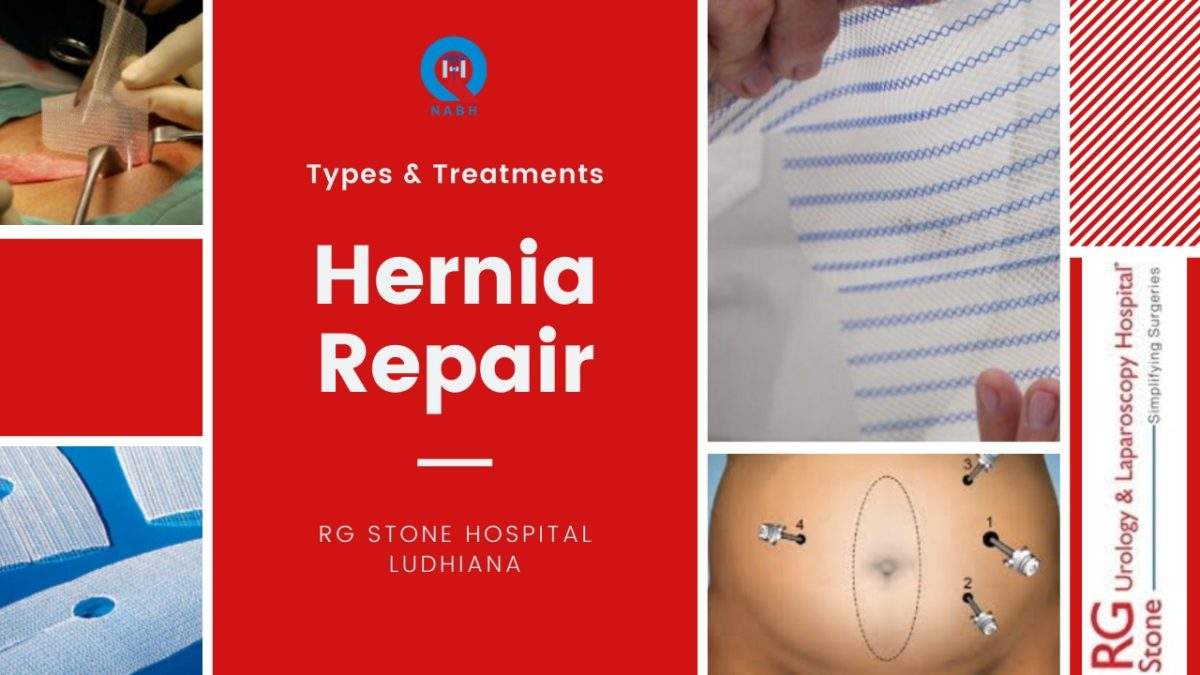The hernia is when fatty tissue or an organ squeezes through a weak spot or hole in the adjoining muscle or tissue. When there is more pressure on an existing weak muscle or tissue, like obesity, heavy lifting, persistent coughing, constipation, etc., it pushes an organ or a tissue into the weak spot resulting in a hernia.
Hernia types
Based on the place of occurrence, the hernia is classified into the fullowing types
- In the inner groin region referred to as inguinal
- In the outer groin or upper thigh region called femoral
- Incisional when it happens through an incision or a scar in the abdomen
- Along the ventral wall or general abdominal region referred to as ventral
- At the belly button called umbilical
- Hiatal, when it happens along the diaphragm/ upper stomach region, inside the abdomen.
There are also three classifications of Hernia made based on the nature of hernia namely,
- Reducible hernia where it can be pushed back into the original position.
- Irreducible hernia where the organ cannot be pushed back.
- Strangulated where the organ is completely stuck inside the hernia with no supply of blood.
Hernia repair types
The procedure in which the displaced tissues are placed again in their rightful position is called Hernia repair. It is a very common procedure done to deal with the hernia and is quite safe.
There are two types of Hernia repair surgeries performed,
- Herniorrhaphy: The oldest method of surgery performed to remove a hernia; this method involves a long incision made on the spot of hernia directly after which a cut is made to access it. This is also referred to as tissue repair surgery for a hernia. The tissues and the organs are replaced in their original position, followed by the removal of the hernia sac. The opening in the muscle or tissue which caused the hernia to protrude is then stitched close to prevent further recurrence. The wound is then sterilized before stitching it closed.
- Hernioplasty: This is referred to as the mesh repair, where the muscle opening causing the hernia is not shut but is rather covered with a sterile mesh. The mesh is either made of animal tissue or polypropylene or similar flexible plastics. Small cuts are made around the tissue with the hole, and the mesh is stitched onto the healthy tissues around the weak spot. This helps the weak tissues to grow with the mesh as a foundation to hold onto. This is also a repair that is classified as tension-free repair.
Both the above surgeries can be done laparoscopically. There are also open repair surgeries for hernia, predominantly done for inguinal, small, and infected or strangulated hernias.
Your surgeon might, however, want to watch the hernia and ensure that it doesn’t grow or cause problems based on which he/she might recommend a surgical procedure. Since hernias have higher chances of recurring, mesh repair is often suggested to strengthen the repair.



